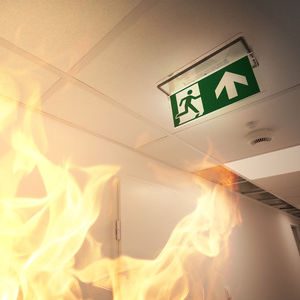What About Emergencies?
Even if employees take all the necessary precautions to protect themselves from hazardous material spills, they still need to be ready to handle emergencies safely. In emergencies like chemical fires and spills, act fast.

- Leave the area at once if you are not trained to handle the problem or if it is clearly beyond your control.
- Alert other people in the area about the emergency.
- Call 911 and the fire department immediately.
- Report the problem to the people responsible for handling emergencies where you work.
- Obtain first aid if you have been exposed to harmful chemicals and remove all contaminated clothes. Emergency eyewash stations and safety showers should be present wherever accidental exposure to materials that can damage skin or eyes might occur.
- Only specially trained people, equipped with the proper tools and protective equipment, should handle the emergency. Nobody else should go near the area until it is declared safe.
Remember, planning, training, and practicing for emergencies are important activities to make sure everyone knows what they must do. For more information on what to do in workplace emergencies, take OSHAcademy course 717 Emergency Action Plans.
Knowledge Check Choose the best answer for the question.
2-7. What should the employer have available wherever accidental exposure to materials that can damage skin or eyes might occur?
You forgot to answer the question!
